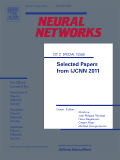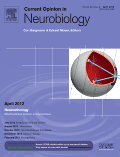
Frontiers in Computational Neuroscience
Scope & Guideline
Unlocking the Mysteries of the Brain through Computational Insight.
Introduction
Aims and Scopes
- Computational Modeling of Neural Dynamics:
The journal focuses on various computational models that simulate neural dynamics, including spiking neural networks, neural mass models, and other mathematical frameworks that help in understanding brain functions and disorders. - Machine Learning and Artificial Intelligence Applications:
There is a strong emphasis on the application of machine learning and AI techniques in neuroscience, particularly in areas like neuroimaging, EEG analysis, and diagnostic applications for neurological disorders. - Neurobiological Insights and Mechanisms:
Research published in the journal often delves into the biological underpinnings of neural processes, investigating the interactions at the cellular and network levels that contribute to cognitive functions and behaviors. - Interdisciplinary Approaches to Neuroscience:
The journal encourages interdisciplinary research that merges insights from neuroscience, psychology, computer science, and engineering to address complex problems in understanding brain function and dysfunction. - Neuroinformatics and Data Analysis:
Frontiers in Computational Neuroscience publishes studies that develop new methods for analyzing neural data, focusing on big data approaches, neuroinformatics, and the integration of multimodal datasets.
Trending and Emerging
- Deep Learning Applications in Neuroimaging:
There is a significant increase in research utilizing deep learning techniques for neuroimaging analysis, particularly in detecting and classifying neurological disorders from MRI and EEG data. - Neurocomputational Models for Neurological Disorders:
Emerging studies focus on developing neurocomputational models that simulate the pathophysiology of neurological disorders, enhancing understanding and offering insights for therapeutic interventions. - Integration of AI and Neuroscience:
The intersection of artificial intelligence and neuroscience is becoming increasingly prominent, with research exploring how AI methodologies can inform and improve neurological research and applications. - Multiscale and Multimodal Approaches:
A trend towards incorporating multiscale and multimodal approaches in studies is evident, reflecting a holistic view of brain function that accommodates data from various levels of analysis. - Cognitive Neuroscience and Computational Psychiatry:
There is a growing interest in cognitive neuroscience applications within computational psychiatry, focusing on how computational models can elucidate cognitive processes and psychiatric disorders.
Declining or Waning
- Basic Theoretical Neuroscience:
There has been a noticeable decline in purely theoretical models that do not incorporate experimental validation or practical applications, indicating a shift towards more applied research. - Single-Method Studies:
Papers focusing solely on a single methodology, such as traditional statistical analyses without computational enhancement, are becoming less frequent as the field increasingly favors integrated approaches that combine multiple methodologies. - Neurophilosophy and Conceptual Discussions:
Discussions centered on neurophilosophical implications or theoretical frameworks lacking empirical support are waning, as the journal leans more towards empirical studies with clear computational or experimental outcomes.
Similar Journals

JOURNAL OF COGNITIVE NEUROSCIENCE
Transforming knowledge of the brain into transformative insights.Welcome to the JOURNAL OF COGNITIVE NEUROSCIENCE, a premier publication in the field of cognitive neuroscience, published by the esteemed MIT PRESS. Since its inception in 1989, this journal has been at the forefront of advancing our understanding of the neural mechanisms underlying cognitive processes, boasting an impressive convergence period through 2024. With its Q1 ranking in the 2023 cognitive neuroscience category, it stands out among 115 peers, indicating its critical role in shaping contemporary research. The journal offers a comprehensive array of research articles, reviews, and methodologies aimed at researchers, professionals, and students alike, facilitating the exploration of complex cognitive functions. While not an open-access journal, it provides essential insights and significant contributions to the neuroscience community, making it an invaluable resource for anyone keen on delving into the intricacies of the human brain.

Network Neuroscience
Advancing Knowledge in Neural Networks and BeyondNetwork Neuroscience is a premier open-access journal published by MIT Press, focusing on the interdisciplinary nexus of neuroscience, applied mathematics, artificial intelligence, and computer science. Since its inception in 2017, the journal has established itself as a leading outlet for innovative research and cutting-edge methodologies, ensuring disseminated knowledge is freely accessible to all. With an impressive Q1 ranking in multiple categories including Applied Mathematics, Artificial Intelligence, Computer Science Applications, and Neuroscience, it serves as a vital platform for scholars, professionals, and students to explore the intricate networks that underpin cognitive processes and brain function. The journal is committed to advancing the understanding of complex neural mechanisms through interdisciplinary approaches and remains a crucial resource for anyone engaged in the burgeoning fields of network science and neuroscience research.

JOURNAL OF COMPUTATIONAL NEUROSCIENCE
Advancing Insights in Computational NeuroscienceJOURNAL OF COMPUTATIONAL NEUROSCIENCE, published by Springer, stands at the intersection of cutting-edge technology and neuroscience research, offering a platform for scholars and practitioners to disseminate advancements in the computational modeling of neural systems. With an ISSN of 0929-5313 and E-ISSN 1573-6873, this esteemed journal has been fostering scientific dialogues since its inception in 1994, continuing to evolve through 2024. Although it currently holds a Q4 ranking in the categories of Cellular and Molecular Neuroscience, Cognitive Neuroscience, and Sensory Systems, it remains dedicated to enhancing its visibility and impact within the field. While the journal is not Open Access, it remains accessible to subscribers and institutions across the globe. By providing a conduit for innovative research and insights, the JOURNAL OF COMPUTATIONAL NEUROSCIENCE serves as an indispensable resource for researchers, professionals, and students keen on pushing the boundaries of understanding in neural computation and systems.

THEORETICAL AND COMPUTATIONAL FLUID DYNAMICS
Exploring the Depths of Theory and Computation.THEORETICAL AND COMPUTATIONAL FLUID DYNAMICS, published by SPRINGER, stands at the forefront of scientific discourse in the fields of fluid mechanics and computational methods. With an impressive impact factor reflecting its significance and reach, this journal has consistently maintained a Q1 ranking across multiple categories, including Computational Mechanics and Condensed Matter Physics as of 2023. Covering a rich scope of theoretical research and computational analysis, it aims to advance the understanding of fluid flow and transfer processes, making it an essential resource for researchers, professionals, and students alike. The journal, with its historical archive extending from 1989 to 2024, not only contributes to foundational theories but also integrates applied research and emerging computational techniques, thus facilitating innovation within the discipline. As a result, THEORETICAL AND COMPUTATIONAL FLUID DYNAMICS serves as a crucial platform for disseminating impactful findings that shape future advancements in fluid dynamics research.

PLoS Computational Biology
Driving Innovation in Cellular and Molecular NeurosciencePLoS Computational Biology is a premier open-access journal published by the Public Library of Science, committed to advancing the understanding of complex biological data through computational approaches. Since its inception in 2005, the journal has made significant strides in the fields of Cellular and Molecular Neuroscience, Computational Theory and Mathematics, Ecology, Genetics, and Molecular Biology, achieving a notable Q1 ranking in various categories as of 2023. With an exceptional impact factor and an esteemed ranking—such as Rank #23/176 in Computational Theory and Mathematics—PLoS Computational Biology provides a vital platform for researchers, professionals, and students to disseminate their cutting-edge findings and insights. The journal's open-access model ensures that high-quality research is freely accessible worldwide, fostering collaboration and innovation across disciplines. Located in San Francisco, CA, it serves as a hub for the global scientific community, making it an indispensable resource for anyone at the forefront of computational biology and its diverse applications.

NEURAL NETWORKS
Shaping Tomorrow's Technologies through Rigorous ResearchNEURAL NETWORKS, an esteemed journal with the ISSN 0893-6080 and E-ISSN 1879-2782, is published by Pergamon-Elsevier Science Ltd in the United Kingdom. This influential journal, established in 1988 and continuing its publication through 2024, is recognized for its significant contributions to the fields of Artificial Intelligence and Cognitive Neuroscience, ranking in the Q1 category in both disciplines as of 2023. With a strong Scopus rank of #4/115 in Cognitive Neuroscience and #35/350 in Artificial Intelligence, and a commendable percentile of 96th and 90th respectively, NEURAL NETWORKS stands at the forefront of academic research. Researchers, professionals, and students can benefit from the journal's rigorous peer-review process and the dissemination of groundbreaking findings that shape understanding in artificial intelligence methodologies and their cognitive applications. While the journal currently operates under traditional access options, it serves as a vital resource in fostering innovations and cross-disciplinary collaboration.

Natural Computing
Transforming Insights from Nature into Computational BreakthroughsNatural Computing is a leading peer-reviewed journal published by Springer, focusing on the interdisciplinary study of natural computation methods and their applications across various domains. With an ISSN of 1567-7818 and an E-ISSN of 1572-9796, this journal has established itself as vital in the field of Computer Science Applications, as reflected in its esteemed Q2 quartile ranking and a Scopus rank of #358 among 817 journals, placing it in the 56th percentile. Based in the Netherlands, Natural Computing covers a diverse range of topics, including computational models inspired by natural systems, evolutionary algorithms, and swarm intelligence. Seeking to bridge the gap between theoretical research and practical applications, this journal serves researchers, professionals, and students by providing insights and advancements in the field. With a commitment to fostering innovation, Natural Computing aims to push the boundaries of understanding in computational methods inspired by nature, making it an essential resource for those looking to contribute to and stay updated within this dynamic area.

Journal of Advanced Computational Intelligence and Intelligent Informatics
Fostering Collaboration in Advanced Computational IntelligenceThe Journal of Advanced Computational Intelligence and Intelligent Informatics, published by FUJI TECHNOLOGY PRESS LTD, stands as a pivotal platform in the fields of Artificial Intelligence, Computer Vision, and Human-Computer Interaction. Established in 1997, this Open Access journal has been providing accessible insights into the latest advancements in computational intelligence and informatics since 2007. With its ISSN 1343-0130 and E-ISSN 1883-8014, this journal invites a diverse readership, including researchers, professionals, and students eager to explore innovative methodologies and applications. Despite its current Q4 ranking in the relevant categories, the journal remains committed to contributing valuable knowledge to the academic community and enhancing the global discourse in computational technologies. With its focus on fostering communication and collaboration among scholars, the journal plays an essential role in driving forward the understanding of intelligent systems and their applications in various domains.

CURRENT OPINION IN NEUROBIOLOGY
Navigating the Evolving Landscape of Neurobiological ResearchCURRENT OPINION IN NEUROBIOLOGY, published by CURRENT BIOLOGY LTD, stands as a premier interdisciplinary journal in the field of neuroscience, specifically focusing on the latest advancements and emerging trends in neurobiology. With an impressive impact factor bolstered by its classification in Q1 in the Neuroscience (Miscellaneous) category and a notable Scopus rank of #16 out of 113 within General Neuroscience, this journal serves as an essential resource for academics, professionals, and students alike. Since its inception in 1991, CURRENT OPINION IN NEUROBIOLOGY has consistently provided insightful reviews covering various aspects of neurobiological research, thereby enhancing our understanding of complex neural processes. While the journal is not open access, it remains committed to disseminating high-quality research and fostering scholarly dialogue, making it a critical platform for those seeking to keep abreast of the dynamic developments in neuroscience.

Interdisciplinary Sciences-Computational Life Sciences
Catalyzing Interdisciplinary Research in Life SciencesInterdisciplinary Sciences-Computational Life Sciences, published by SPRINGER HEIDELBERG, is a premier journal dedicated to advancing the field of life sciences through the lens of computational methods. With an ISSN of 1913-2751 and an E-ISSN of 1867-1462, this journal serves as a significant platform for researchers and professionals alike, fostering innovation and collaboration across various disciplines. As a testament to its impact, the journal holds a Q2 category status in Biochemistry, Genetics and Molecular Biology, Computer Science Applications, and Health Informatics, reflecting its influential contributions and rigorous peer-review process. The Scopus rankings demonstrate its esteemed placement within its fields, with notable percentiles that highlight its relevance and reach. While the journal operates under a traditional access model, its commitment to publishing high-quality research continues to stimulate important discussions and developments within the scientific community. Founded in 2009 and converging through 2024, Interdisciplinary Sciences-Computational Life Sciences remains an essential resource for the latest discoveries at the intersection of computation and life sciences, appealing to both seasoned researchers and enthusiastic students eager to contribute to this dynamic field.